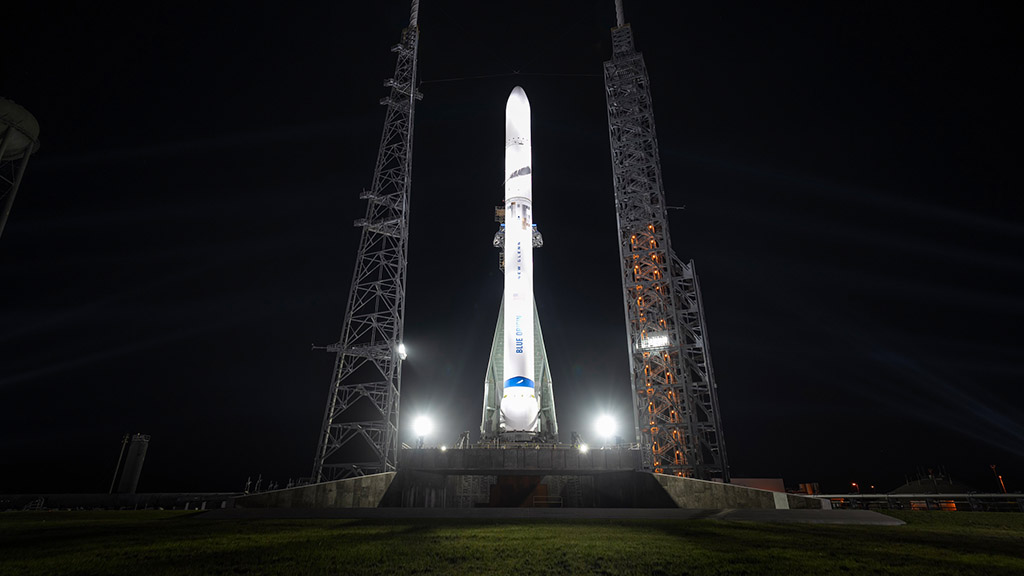Blue Origin
Blue Origin New Glenn gets an official launch date

Blue Origin has announced the first New Glenn launch date for October this year. The company is planning to liftoff this space vehicle no earlier than October 13.
The rocket maker has been preparing this maiden flight for quite some time and is continuously testing the components for this rocket to meet the first launch date.
New Glenn is designed for reusability and aims to fly through 25 missions. The entire vehicle measures more than 320 ft. It has a seven-meter fairing, an upper stage, fins, a first stage, strakes, and landing gear.
The first stage utilizes seven BE-4 engines using liquid oxygen to create the thrust. Each BE-4 engine can generate 550,000 lbf thrust at sea level with deep-throttle capability.
The second stage has two BE-3U engines with 160,000 lbf of vacuum thrust. These engines can restart in space.
Interestingly, the company aims to master booster recovery with this flight. Unlike New Shepard, Blue Origin will land the first stage on a drone ship in the sea, similar to SpaceX.

Blue Origin New Glenn Launch Vehicle at Launch Complex 36 (LC-36) (Credit: Blue Origin)
Payload
The inaugural New Glenn mission will carry NASA’s ESCAPADE (Escape and Plasma Acceleration and Dynamics Explorers) orbiter satellites. This will be the first multi-spacecraft orbital science mission to the red planet.
These two orbiters will work in tandem to observe Mars from different locations. This mission will investigate how the solar wind interacts with Mars’ magnetic environment and how this process impacts the planet’s atmosphere.
Data collected with this mission will analyze how Mars’ magnetic field leads particle flows around the planet. It will also reveal how energy and momentum are transferred from the solar wind through the magnetosphere.
It will also help to learn what processes control the energy flow and matter into and out of the atmosphere.
(source – NASA)










